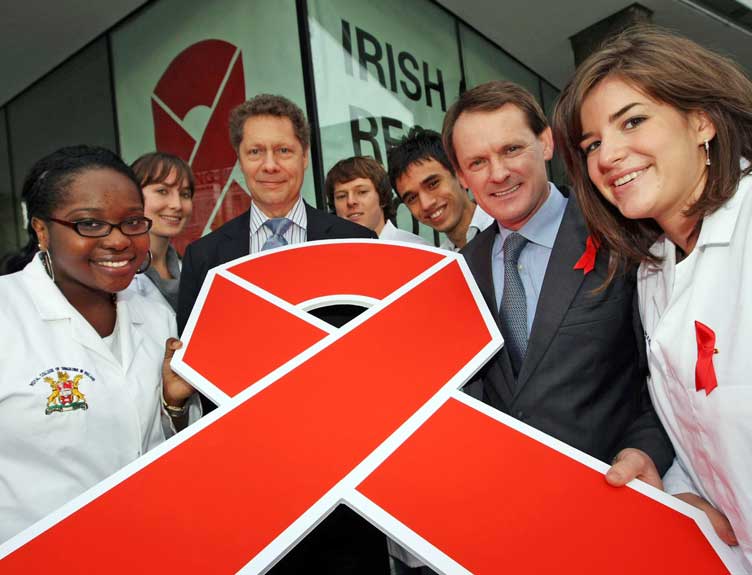Minister of State for Overseas Development opens lecture for World Aids Day

Minister of State for Overseas Development Peter Power today put women at the centre of Ireland’s effort to tackle HIV and AIDS in sub-Saharan Africa.
Opening the 2009 Father Michael Kelly Lecture for World AIDS Day at RCSI, Minister Power said women were particularly vulnerable to the disease.
"Approximately 60 per cent of people infected with HIV in sub-Saharan Africa are women. Ireland recognises that gender inequality is a major driver of the epidemic," Minister Power said.
"Women are physically and socio-economically more vulnerable to HIV and AIDS than men, while also bearing the greatest burden of care for those who succumb to the virus. Irish Aid, the Government’s programme for overseas development, invests in empowering women to protect themselves against infection. Our targeted and effective interventions are saving thousands of lives. For example, in Mozambique Irish Aid’s support has meant that almost 50,000 mothers are now receiving drugs to prevent their unborn children becoming infected. In Lesotho, thanks partly to Irish Aid support, more than 80,000 people are now receiving anti-retroviral treatment. We are committed to supporting testing and treatment for HIV and to investing in research initiatives to develop an AIDS vaccine. Our partnership with the International AIDS Vaccine Initiative is one such example. The recent progress in the development of an effective vaccine is testament to the success of this partnership."
Over 33 million people worldwide are living with HIV, with two-thirds of those affected in sub-Saharan Africa.
"Ireland has justifiably acquired a strong international reputation for its commitment to the fight against HIV/AIDS. We are committed to spending over €100 million annually to combat this and other communicable diseases, which ravage the lives of so many men, women and children in the developing world," Minister Power continued.
The theme of this year’s lecture, held to mark the 21st anniversary of World Aids Day, is 'Universal Access to Prevention: Making it Work for Women'. Guest speaker at the lecture is Dr Seth Berkley, President of the International AIDS Vaccine Initiative (IAVI).
Dr Berkley said: "HIV prevention is especially important for women, who comprise more than half of new HIV infections globally. Women bear the brunt of the epidemic, in part because they do not have enough options for prevention methods that they can initiate and control. An AIDS vaccine can address their needs. Recent advances in research have brought us several steps closer to an effective vaccine. We now must push forward to make such a vaccine a reality for women and others who need it."
Professor Ruairí Brugha, Head of Epidemiology and Public Health Medicine in RCSI, said: "As a result of the support by Ireland and other donors to the Global Fund to Fight AIDS, TB and Malaria, which provides most of its support to countries in Africa that are ravaged by AIDS, we are now seeing real progress. More people are on AIDS treatment – up from three million to four million during 2008, with three million of those in Africa alone. More pregnant women who are living with HIV received antiretroviral drugs to prevent their babies getting infected with the HIV virus – up from an estimated 35% to 45% during 2008."



